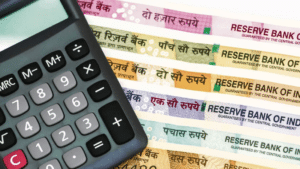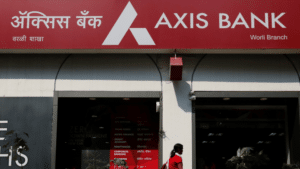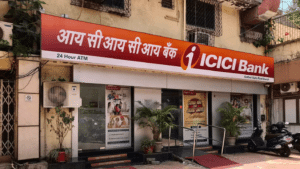Did you know that there are around 32 million NRIs and PIOs in the world? This has been stated according to a research report by the Ministry of External Affairs.
Around 2.5 million Indians relocate overseas, which happens to be the highest number of migrants in the world.
For many personal reasons, it is extremely important to have an NRE savings account in India that caters to their needs.
That’s why, I am going to talk about the best NRE savings accounts in India.
If you have any specific questions related to NRE accounts, you can refer to the FAQ section of this article.
If you are looking to invest as an expat or high-net-worth individual, which is what I specialize in, you can email me (advice@adamfayed.com) or WhatsApp (+44-7393-450-837).
We recommend that most wealthy locals and expats invest offshore despite this list, and we can help with that.
Having said that, let us now have a look at some of the best NRE savings accounts available for NRIs.
NRE (Non-Resident External) Account

An NRE account is a specialized account for NRIs that allow them to credit funds from overseas.
The withdrawals from these accounts can be made either outside of India or in India.
Therefore, when an NRI visits India, they can easily make transactions or withdraw funds with such an account.
In general, the funding of these accounts is usually done with the help of a draft or RTGS.
RTGS (Real-Time Gross Settlement) is an instant payment method that allows the transfer of money or securities.
You can get more details regarding NRE accounts through the FAQ section at the end of this post.
In this article, I am only focusing on the NRE savings accounts instead of the NRE current accounts.
The reason for doing so is because these offer interest on the money deposited with tax benefits.
Disclaimer:
Some of the banks offer an interest rate that is based on the Repo rate (Repurchasing Option or Repurchase Agreement).
Most of the interest rates, fees, and other details are accurate and up to date while writing this article.
However, such fees and rates are subject to change as per the respective bank’s decisions.
Therefore, it is wise to check such details by visiting the bank’s website or reaching out to a customer support executive.
You should also know that the documents needed or the general eligibility is pretty much the same for any of these accounts mentioned.
The general eligibility includes that the person must be an NRI or PIO, and in a few cases, can be an OCI.
I personally provided various links within the article that will lead to the specific information mentioned.
Having said that, I am in no way associated with any of these banks, and neither do I endorse them.
Any decision you make should be based on your personal preference or information provided by your financial manager.
Best NRE Savings Accounts 2023
Without any further ado, let us have a look at some of the best NRE savings accounts as well as some of the important information related to them.
Axis Bank

It is also among the top five largest banks in India based on the market cap given.
Axis Bank offers specialized NRE accounts for Indians who are living abroad.
These are further classified into different types of accounts as per the features offered by the bank.
The average interest rates offered with Axis Bank NRE accounts range between 3% to the Repo rate (-0.65%).
The current repo rate as of 6th May 2023 is 6.50% capping the highest interest rate earned at 5.85%.
You can get access to all the fees and charges associated with Axis NRE savings accounts by clicking here.
Easy Savings Account
This account has a minimum balance account requirement based on the location of the bank’s branch. NRIs who are salaried individuals are not required to become eligible for the balance requirements.
Unlimited Axis ATM transactions along with 5 free non-Axis ATM branch transactions.
To access more details related to the Axis Easy Savings Account, click here.
Prime Savings Account
This account has a monthly balance account of Rs. 25,000 or the accountholder needs to maintain Rs. 1 lakh as a term deposit.
Cash withdrawals can be made up to Rs. 40,000 and a shopping limit of Rs. 2 lakhs is offered.
Unlimited Axis ATM transactions in India along with 10 free non-Axis ATM branch transactions.
To access more details related to the Axis Prime Savings Account, click here.
Other types of accounts offered by Axis Bank for individuals include:
Mariner Savings Account (for Mariners and Seafarers)
I haven’t provided a detailed insight on these accounts as the minimum/monthly balance requirements are higher.
These accounts might also have more conditions for being approved on par with Easy Savings Account and Prime Savings Account.
Kotak Mahindra Bank

Kotak Mahindra Bank offers NRE accounts known as:
As usual, the Mariner Savings Account is specifically designed for mariners and seafarers.
The NRE Rupee Current Account is a tailored current account for NRI people.
As for eligibility, any NRI or PIO is deemed eligible for the NRE Accounts offered by Kotak Mahindra Bank.
If you need any other information related to the NRI account services offered by Kotak Mahindra Bank, click here.
NRE Rupee Savings Account
The deposited money as well as the interest is easily repatriable at no cost for any account type.
The interest rate offered with this account is 3.5% p.a. on the daily closing balance and is offered every quarter.
Dedicated services known as Home Banking Services are provided within India.
The average quarterly balance that needs to be maintained with this account is Rs. 10,000.
The information related to the documents needed for opening this account can be accessed by clicking here.
You can also access all the information related to the fees and charges of the NRE accounts by clicking here.
NRE Platina Savings Account
The main feature of this savings account is that a preferential forex rate is provided.
For being eligible for this preferential rate, the transaction must be at least USD 25,000 or equivalent to it.
The deposited money as well as the interest is easily repatriable at no cost for any account type.
The interest rate offered with this account is 3.5% p.a. on the daily closing balance and is offered every quarter.
Complimentary net banking services.
Dedicated services known as Home Banking Services are provided within India.
The average monthly balance that needs to be maintained with this account is Rs. 1,00,000.
The information related to the documents needed for opening this account can be accessed by clicking here.
You can also access all the information related to the fees and charges of the NRE accounts by clicking here.
Having said that, Kotak Mahindra Bank also offers Portfolio Investments schemes that can be accessed through any NRE or NRO account.
They also have a Nova Savings Account, which is specialized for foreign residents in India.
ICICI Bank

The NRE Savings Account offered by the ICICI Bank is also among the best NRE accounts available.
The money transfers with this account are free while offering competitive exchange rates.
A mandate card and chequebook are offered to the family members of the account holder in India.
The interest rate offered with this account is 3.5% for balances above Rs. 50 lakhs and 3% below Rs. 50 lakhs.
This interest is accrued every day and the funds (principal + interest) are free from taxes in India.
An international ATM/debit card is offered, which can be accessed across 11,000+ ATM centers in India.
The minimum monthly average balance is Rs. 10,000 at an account level and Rs. 25,000 on the customer ID level.
You can get access to all the fees and charges related to the ICICI Bank NRE Savings Account by clicking here.
If you want to apply or know other details related to the NRE Savings Account, click here.
HDFC Bank

HDFC offers three types of NRE accounts, which are:
The interest rate offered for the accounts is 3% or 3.50% based on the account balance maintained.
NRE accounts at HDFC can be accessed through online banking, mobile banking, and phone banking.
These accounts can be closed anytime by providing proper documentation and abiding by the bank’s closure procedure.
Let us have a quick review of each of these account types.
NRE Savings Account
An NRE account is a savings account for NRIs (Non-Resident Indians) to park their foreign income earned outside India.
The minimum deposit amount for this NRE account is INR 10,000 or its equivalent in foreign currency.
HDFC Bank provides a debit card as well as a chequebook for NRE accounts. This card and chequebook can be used in India and overseas.
The bank provides 24×7 customer service to assist NRI customers with their queries or concerns.
To get more details or apply for the HDFC NRE Savings Account, click here.
NRE Womens Account
This is a dedicated savings account for Non-Resident Indian (NRI) women to manage their foreign income.
The account can be opened jointly with another NRI woman or as a sole account holder.
The minimum deposit amount for the NRE Womens Account is INR 10,000 or its equivalent in foreign currency.
Other special features include:
— Preferential interest rates on deposits
— Zero-balance facility (first six months)
— Free International Debit Card.
There is also a 50% discount on the first year’s annual locker rental fee. An additional 25% discount is offered on the subsequent years’ fees.
HDFC Bank provides 24×7 customer service to assist NRI customers with their queries or concerns related to the NRE Womens account.
To get more information or apply for the HDFC NRE Womens Account, click here.
NRE Elite Savings Account
This is a high-end savings account for NRIs who want to manage their foreign income earned outside India.
The account can be opened with a minimum deposit of INR 1 lakh or its equivalent in foreign currency.
The account offers preferential interest rates on deposits and other exclusive benefits including:
— Personalized banking services
— Unlimited free withdrawals (at HDFC ATMs)
— A free International Debit Card
— The discounts on locker rental fees are the same as that of the NRE Womens Account
— A sweep-in feature for combining the fixed deposits when the minimum balance falls short
— A money maximizer feature for earning a higher interest by moving some excess money into fixed deposits
HDFC Bank provides 24×7 customer service to assist NRI customers with their queries or concerns related to the NRE Elite Savings Account.
To know more details or apply for the HDFC NRE Elite Savings Account, click here.
SBI (State Bank of India)

SBI is one of the leading banking providers in India, which happens to be a government-backed corporation.
SBI Bank offers three NRE accounts, which are:
The NRE Sukoon Current Account is a current account and does not offer any interest on the funds deposited.
The NRE accounts at SBI are available for NRIs, PIOs, and OCIs, just like most other banks.
The interest rate for SBI NRE accounts is 2.70% for balances less than Rs. 10 crores and 3% for balances above that.
For the NRE Savings Account and NRE Salary Account, the features offered are pretty much the same.
The only major difference is that NRE Salary Account is only available for those who:
— Work overseas while working for an Indian company or the government, or on a ship that travels internationally.
— Work for a foreign employer or on a ship that travels internationally.
Some of the features offered by NRE accounts have been listed below:
— International/Domestic debit card
— NRI family card
— Multi-city cheque book
— Internet banking
— Rupee loan against deposits
— Withdrawals in INR
NRE Salary Account usually has some additional benefits such as no service charges for:
— SMS alerts
— NEFT/RTGS transactions through INB
— Issuance of Multicity chequebooks
— Issuance of demand drafts
— Issuance of debit card
— Annual maintenance of debit card
— PIS account opening
— Issuance of NRI Family Card
The services charges are waived by 50% for NRI home loan processing.
To apply for the SBI NRE Salary Account, click here, and to apply for the SBI NRE Savings Account, click here.
RBL (Ratnakar Bank Limited)

RBL bank offers the highest interest rates among all the notable banks in India for NRIs.
RBL bank offers two dedicated savings accounts for NRIs namely:
Prime Edge NRE Savings Account
The interest rates offered on the NRE savings accounts of RBL bank are listed below (accrued on daily balance).
4% p.a. – Rs. 200 crores to Rs. 400 crores
4.25% p.a. – up to Rs. 1 lakh
5.25% p.a. – Rs. 50 crores to Rs. 100 crores; more than Rs. 400 crores
5.50% p.a. – Rs. 1 lakh to Rs. 10 lakhs
6% p.a. – Rs. 10 lakhs to Rs. 25 lakhs; Rs. 100 crores to Rs. 200 crores
6.25% p.a. – Rs. 7.5 crores to Rs. 50 crores
7% p.a. – Rs. 25 lakhs to Rs. 7.5 crores
Given below are the features of the ACE NRE Savings Account offered by the RBL bank.
— High interest rates
— Tax-free interest
— Free fund transfers
— Zero balance account
— Global debit card
— Mobile banking
— Online banking
— 24/7 customer support
To know the complete details of the ACE NRE Savings Account, click here.
Now, let us have a look at the main features of the Prime Edge NRE Savings Account.
— All the benefits offered with the ACE NRE Savings Account
— Priority banking services
— Dedicated relationship manager
— Preferential rates on services and products
— Free bill payment service
— Power of attorney/mandate services
— Payable-at-par chequebook
To know the complete details or apply for the Prime Edge NRE Savings Account, click here.
Honourable Mentions
There are some other banks that are known to be the best for NRE savings accounts, which are given below.
To avoid hassle for my readers, I have provided all the links related to the specific account types.
Bank of Baroda
The NRE savings accounts offered by the Bank of Baroda are as follows:
Baroda NRE Salary Savings Account
Baroda Premium NRE Savings Bank Account
The interest rate offered on these NRE savings accounts can range between 2.75% to 3.35% based on the outstanding balance.
Citibank
With Citibank, you get access to an NRI Savings Account, which can be further chosen between NRE or NRO account types.
To access all the information related to the Citibank NRI Savings Account, click here.
As of writing this article, i.e., 11th May 2023, the interest rates for the NRE savings accounts at Citibank are:
3% p.a. – For less than Rs. 50 lakhs
3.50% p.a. – For balances between Rs. 50 lakhs and Rs. 800 crores
MIBOR + (0.70%) – For balances more than Rs. 800 crores
Note – MIBOR is the Mumbai Interbank Overnight Rate, i.e., the lending rate set forward for commercial banks.
Yes Bank
Yes Bank also offers a dedicated NRE Savings Account for NRI individuals.
To apply or know additional details about the NRE Savings Account, click here.
The interest offered on the NRE Savings Account is based on the balance maintained, which is as follows.
4% p.a. – For a balance less than Rs. 1 lakh
4.25% – For balances between Rs. 1 lakh and Rs. 5 lakhs
5.00% p.a. – For balances between Rs. 5 lakhs and Rs. 10 lakhs
6.00% p.a. – For balances between Rs. 10 lakhs and Rs. 1 crore; For balances between Rs. 10 crores and Rs. 25 crores
6.25% p.a. – For balances between Rs. 1 crore and Rs. 10 crores
Specialized rates are offered on balances ranging over Rs. 25 crores, and these can be found by contacting the bank.
Frequently Asked Questions
1. Who can open an NRE account?
Any NRI or PIO is allowed to open an NRE account.
2. What documents are required to open an NRE account?
Commonly, KYC documents required for opening an NRE account are:
— Passport
— Visa
— Proof of address
— ID proof
3. What is the minimum balance requirement for an NRE account?
The minimum balance required for an NRE account is not the same for all banks.
You can know about the specific details by contacting the bank through the links provided within this article.
4. Can I open more than one NRE account?
Yes, it is possible for an individual to have more than one NRE account, but I don’t think it may be necessary.
5. Can I deposit foreign currency in my NRE account?
Yes, you will be allowed to deposit foreign currency in your NRE account.
6. Are there any restrictions on the withdrawal of funds from an NRE account?
After extensive research, I found that there are no restrictions on the amount that can be withdrawn from these accounts.
7. Can I transfer funds from my NRE account to an NRO account?
Unlike most people assume, one can transfer funds between their NRE and NRO accounts.
8. What are the tax implications of an NRE account’s interest?
One of the key advantages of having an NRE savings account is that the interest earned from this account is tax-free.
However, there is a possibility that you may be charged with taxes in your country of residence based on the country’s specific tax rules.
9. Can I use my NRE account for investments in India?
You can use your NRE account for investment purposes, even the investments made in India. To know more details related to investments for NRIs, click here.
10. Can I use my NRE account for the repatriation of funds abroad?
Yes, your NRE account comes in handy during the repatriation of funds abroad.
11. What happens to my NRE account if I return to India?
Since you will not be considered a foreign resident anymore, your NRE account should be converted to a Resident bank account.
This is mandatory according to the rules set forth by the Reserve Bank of India (RBI), a monetary body regulating financial services.
You can simply inform your bank regarding your return and they’ll take of the process related to conversion.
After converting the account into a resident account, you’ll be subject to taxes on the interest earned.
12. I have a loan against my bank account, what happens when it is converted into a resident savings account?
You’ll still be subject to repayment of any loan taken against your NRE bank account. This usually gets deducted from your account based on the repayment terms and the bank’s currency conversion policies.
13. Can I convert my NRE bank account into a regular savings account even while staying overseas?
According to the RBI, it is not possible for an individual to convert their NRE account into a regular one, especially while staying overseas.
You must have to return to India and get in touch with your bank regarding the conversion process.
14. What is the difference between an NRE account and an NRO account?
In simple terms, the NRE account is used for depositing income obtained from foreign sources.
On the contrary, the NRO account is helpful for depositing any income obtained from Indian sources like rent, pensions, etc.
There are some other small differences between these two types of accounts in terms of:
— Repatriation (only USD 1 million in a year for NRO accounts).
— Taxes (the funds in an NRO account are liable for taxes in India).
— Currency (NRE accounts can only be held in the Indian currency, whereas NRO accounts have the flexibility of being held in a foreign currency).
— Joint accounts (NRO accounts can be opened as joint accounts in collaboration with other NRIs or Indian citizens).
15. Which is better? NRE account or NRO account?
It is primarily dependent on your personal preferences and usage of the funds being held in the account.
For instance, you should go with an NRO account when you are earning money through sources in India.
If you wish to deposit your foreign income, then an NRE account is better.
16. Can I withdraw money abroad using an NRE account?
Yes. NRIs are allowed to withdraw money abroad with the help of an ATM/debit card linked to their NRE account.
17. Are there any fees for withdrawing money abroad with the help of an NRE account?
Usually, there are different types of fees associated with withdrawing money abroad using an NRE account.
These fees include currency conversion fees, foreign transaction fees, and withdrawal fees, which are subject to the NRI’s country.
18. Can I send money to a local bank account with the help of my NRE account?
Yes, you can transfer money from your NRE account to a local bank account.
Usually, there are no fees for doing this, yet it may be possible to incur fees depending on the type of transfer and the bank.
19. Is it safe to deposit money in an NRE account as an NRI living overseas?
Although bank deposits may look extremely safe while parking your money, there are some downsides.
As an example, we can take a look at the Yes Bank scenario that took place in March 2020. The bank faced financial problems at that time, and such situations may put depositors’ money at risk.
However, Yes Bank is now a stable bank with capital investments from various private investors. I started the financial crisis as an illustrative example so that you can understand the problems that may arise.
Bottom Line
These are some of the top banks that offer NRE accounts to their individuals at the time of writing this.
Instead of being generic about the information, I have included all the necessary information including the account types available.
I also provided respective links to the web pages of those accounts so that you can get to them directly.
Note that I am in no way affiliated with any of these banks, and therefore, you should make the decision based on your choice.
The main objective of this article is to provide all the necessary information in a single place so that you don’t need to browse a lot of websites.
That being said, bank accounts may not be an extremely ideal choice for individuals to park their money.
The interest accrued from the bank deposits may not be enough to grow your wealth. Keeping the growing wealth part aside, you may not even be successful to beat inflation in most cases.
What’s the point of letting your money sit aside ideally while you can generate higher returns from them?
If you need a more promising solution that’ll allow you to make the most of your money, feel free to contact me.
I specialize in providing financial solutions to expats (including NRIs) who want tailored investment solutions.
Feel free to contact me so that we can discuss more about how you can generate more profits from your capital.
That being said, I strongly hope that the information in this article was helpful for all my NRI readers.
Pained by financial indecision? Want to invest with Adam?

Adam is an internationally recognised author on financial matters with over 827million answer views on Quora, a widely sold book on Amazon, and a contributor on Forbes.



